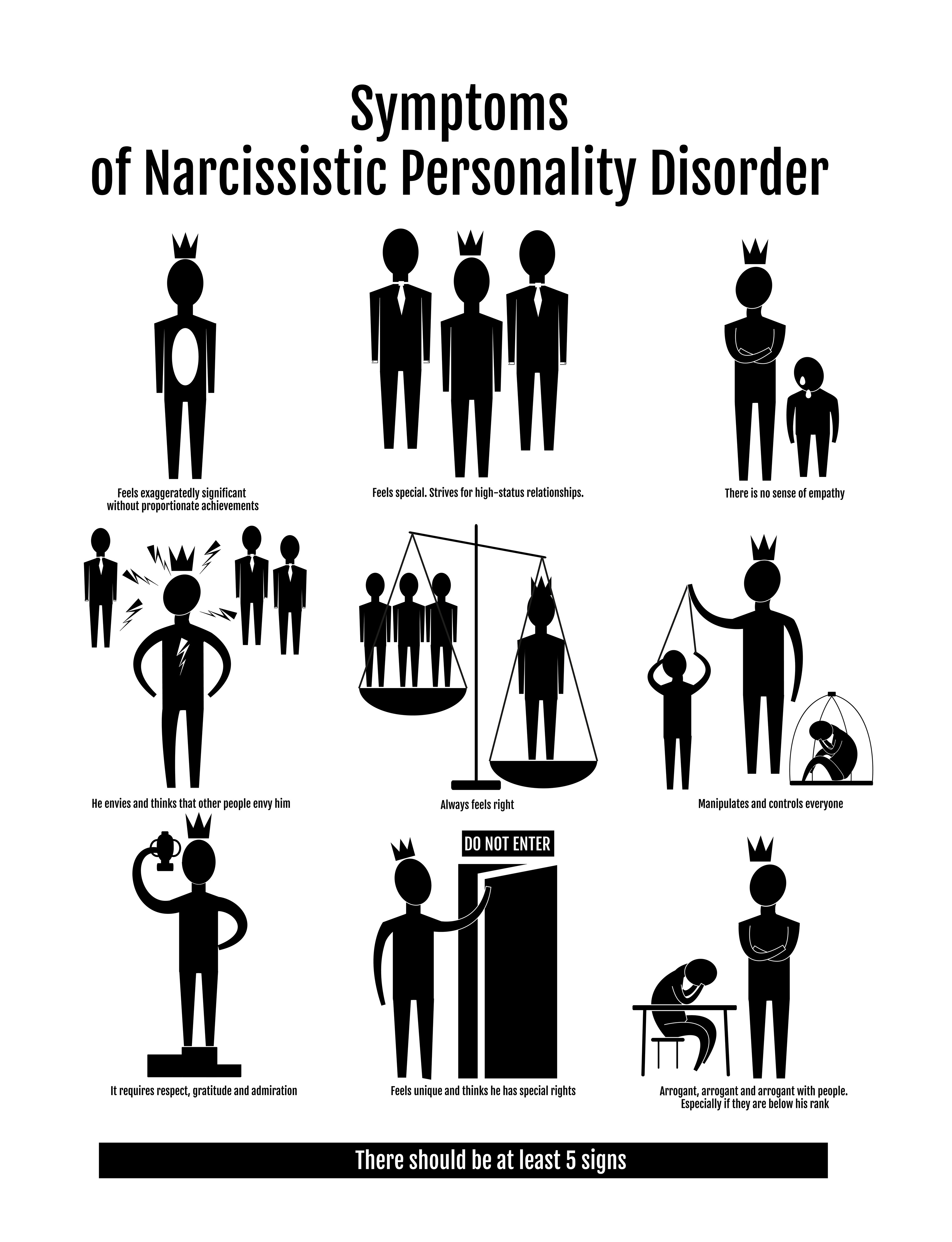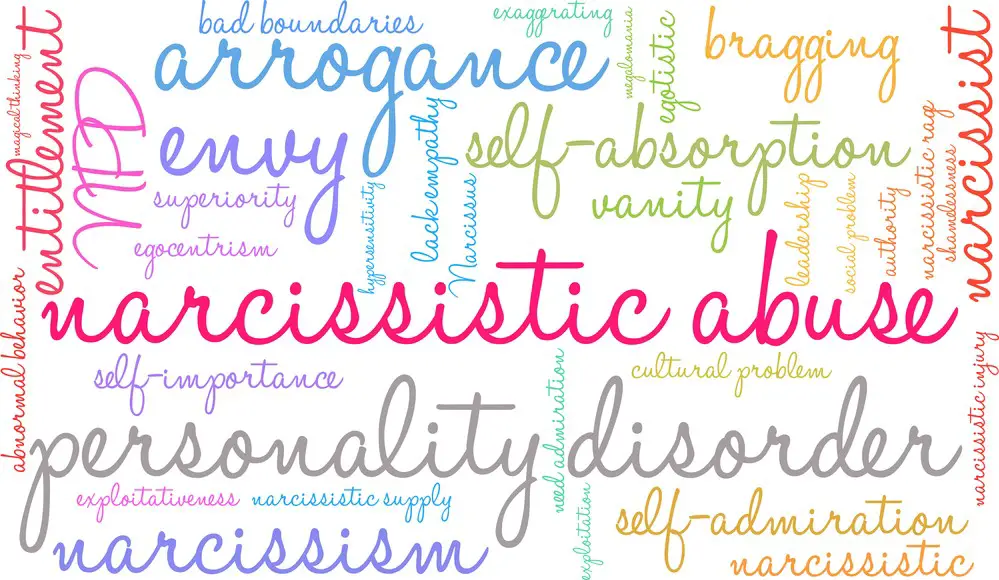As a BetterHelp affiliate, we receive compensation from BetterHelp if you purchase products or services through the links provided
Loving someone with narcissistic personality disorder can be a challenging and complex experience. A narcissist often lacks empathy and has a heightened sense of self-importance, which can create difficulties in maintaining a healthy and balanced relationship. However, understanding their behavioral patterns and personality traits makes it possible to create a harmonious bond with a narcissist.
Entering a relationship with a narcissist requires patience, empathy, and open communication. As you learn to navigate their unique needs, it’s essential to maintain your emotional well-being. Setting boundaries, establishing coping strategies, and being aware of the challenges ahead can go a long way in mitigating the emotional toll that loving a narcissist might place on you and your relationship.
Key Takeaways
- Develop empathy and understanding of narcissistic traits
- Establish healthy boundaries and communication methods
- Employ coping strategies for maintaining emotional well-being
Understanding a Narcissist
Personality Traits
A narcissist is an individual who tends to have an inflated sense of self-importance, a need for admiration, and a lack of empathy for others. These characteristics emerge from a deeply-rooted insecurity, which may make it difficult for them to handle criticism or form meaningful relationships. It is crucial to understand that narcissists’ actions often stem from a desire to protect their fragile egos.
Narcissistic Traits
Narcissistic personality disorder (NPD) is a mental health condition characterized by extreme self-centeredness and self-admiration. Some prevalent narcissistic traits include:
- Grandiosity: Narcissist often has excessive self-importance and believes they are superior to others, seeking constant validation to maintain their inflated self-image.
- Lack of empathy: Narcissists struggle with empathizing with others’ feelings and needs because their primary focus is protecting and promoting their interests.
- Manipulative behaviors: A narcissist may use various tactics such as gaslighting, deceit, or emotional blackmail to control others and maintain their sense of self-worth.
- Excessive need for admiration: Narcissists crave attention and recognition; they may envy others who receive praise or feel slighted if they are not the center of attention.
Recognizing these traits can help understand a narcissist’s mindset and navigate interactions with them. Remember that loving a narcissist may require patience and setting boundaries as they struggle to prioritize others’ needs alongside their own.
 Entering a Relationship with a Narcissist
Entering a Relationship with a Narcissist
Recognizing Manipulative Behavior
When entering a relationship with a narcissist, it is essential to understand their manipulative behaviors. Narcissists often try to control their partner, using tactics such as guilt-tripping, gaslighting, and playing the victim. Recognize these behaviors in your partner and be aware of how they affect your relationship. By identifying these tactics early on, you can work on establishing healthy boundaries to protect yourself from their manipulation.
- Be mindful of guilt-tripping: Narcissists often use guilt to get their way.
- Beware of gaslighting: They may attempt to distort your perception of reality, making you doubt your feelings and experiences.
- Look out for victim-playing: Narcissists sometimes portray themselves as victims to elicit sympathy and manipulate others.
Dealing with Overwhelming Charm
A relationship with a narcissist can be both exciting and challenging due to its overwhelming charm. They are often charismatic and know how to make a strong impression. While their charm can be magnetic, it’s important to remember that it’s often a facade to manipulate and control. Maintaining a clear understanding of their true intentions can help you manage the relationship better.
To handle a narcissist’s charm effectively:
- Don’t get swept away: Be cautious of the strong feelings they evoke, and practice grounding techniques to stay connected to your inner self.
- Remain emotionally detached: Try to take a step back and not invest too deeply emotionally, which can help you stay objective about the relationship.
- Set boundaries: Establish and maintain healthy boundaries to prevent getting caught in their manipulative web.
While navigating a relationship with a narcissist may be difficult, being educated, confident, and aware of their tactics can help you manage the challenges more effectively.
Loving a Narcissist
 Preserving Your Self-Esteem
Preserving Your Self-Esteem
Loving a narcissist can be challenging, as they often have a strong need for admiration and can lack empathy for others. To maintain a healthy relationship, it’s essential to preserve your self-esteem. Set clear boundaries and communicate your needs directly. For instance, establish limits on how much affection or attention you’re willing to give and gently but firmly enforce them when necessary.
Practice self-care by taking time for yourself and engaging in activities that make you feel good. Remember that your worth and value are independent of your partner’s approval. Seek support from friends, family, or a therapist when needed. Remember, loving a narcissist doesn’t mean neglecting your well-being.
 Move beyond pain and confusion together
Move beyond pain and confusion together
Building Empathy
Building empathy is crucial when loving a narcissist, as it may help them develop a deeper understanding of your feelings and improve the emotional connection in your relationship. Encourage open and honest communication by discussing your feelings and listening to their perspective without judgment. It’s crucial to avoid assuming that they intentionally want to cause harm.
You can also use active listening techniques, such as summarizing what they’ve said and reflecting their emotions to them. It can help them feel heard, creating an environment that fosters empathy.
Sometimes, self-reflection can help narcissists understand how their actions impact others. It’s important to approach these conversations delicately, focusing on specific behaviors or situations rather than making sweeping statements about their personality. For example, you might say, “When you didn’t ask about my day, I felt uncared for.”
Introducing shared experiences, such as volunteering, traveling, or participating in group activities, can also help build empathy. These activities can develop a closer bond and create opportunities for the narcissist to witness and engage with different expressions of love and compassion.
In some cases, professional help, like therapy or medication if needed, can be beneficial in developing empathy and overcoming the challenges associated with narcissistic behavior. Remember that change takes time and effort, but patience and shared goals can lead to growth in your relationship.
Setting Boundaries
Move beyond pain and confusion together
Creating Safe Distance
Setting boundaries is essential when loving a narcissist. Establishing a safe distance between yourself and the narcissistic person is important. This could mean limiting your time with them or maintaining emotional distance. For instance, not sharing your deepest thoughts and feelings may be necessary to protect yourself.
Creating a safe distance also involves identifying the situations or topics that trigger the narcissist’s toxic behaviors. Once these are recognized, avoid or minimize these encounters to protect your well-being.
Resisting Manipulation
Narcissists often exhibit manipulative behaviors, which can lead to feelings of disappointment and hurt. To resist manipulation, it is crucial to maintain a strong sense of self and personal boundaries. This can be accomplished by:
- Staying true to your beliefs and values: Do not compromise your core beliefs for the narcissist’s sake. Recognize when they are crossing your boundaries and stand firm in your convictions.
- Being assertive: Communicate your needs and preferences without being aggressive or confrontational. Express your feelings and thoughts, and do not hesitate to say “no” when necessary.
- Not taking their actions personally: Remember that narcissists’ behavior reflects their insecurities and need for validation. It is not a direct attack on you as an individual.
- Seeking support from friends, family, or a therapist: Surround yourself with people who understand and support you. This will help maintain a balanced and healthy perspective on the relationship.
By establishing boundaries and resisting manipulation, you can create a healthier environment for yourself and possibly help the narcissist recognize the impact of their behavior.
Coping Strategies
Dealing with Insecurity
When loving a narcissist, one common challenge is coping with the insecurity they often bring to the relationship. Practicing mindfulness can help in managing these feelings. By being present and aware of your thoughts and emotions, you can better understand the root causes of your insecurity. This can help reduce feelings of low self-esteem from the narcissist’s actions or behavior.
Working on your self-esteem is also essential. Focus on your accomplishments, strengths, and positive qualities, and remind yourself that you deserve love and respect. By doing this, you can create a buffer against the negative impact the narcissist’s actions may have on your well-being.
Managing Disappointment
Another challenge in loving a narcissist is dealing with disappointment. It’s vital to set realistic expectations and understand that the narcissist may be unable to fulfill all your emotional needs. Interestingly, this understanding can lead to a healthier relationship dynamic by preventing patterns of co-dependency.
One way to manage disappointment is to have a strong support network outside your relationship. This might include friends, family members, or professional help. Having others to turn to when you feel let down makes you less likely to rely solely on the narcissistic person for emotional support.
Also, learning from past experiences with the narcissist can prevent future disappointments. For instance, if you have a narcissistic ex, reflect on the lessons learned in that relationship and apply them to your current situation. This can help you detect red flags and develop coping mechanisms accordingly.
Finally, it’s important to ensure that envy doesn’t sabotage your relationship. Narcissists may inadvertently breed envy through actions or words, which can strain the relationship further. By focusing on appreciating your accomplishments and practicing gratitude, you can reduce feelings of envy and maintain a more balanced, neutral relationship.
Frequently Asked Questions

Embrace hope and understanding as a couple.
How can I support a narcissistic partner?
Supporting a narcissistic partner requires understanding their needs and adjusting your approach. Empathize with their emotions and validate their feelings, but maintain a sense of self-awareness and independence. Encourage them to seek professional help if necessary.
What are the best strategies for dealing with a narcissist in a relationship?
Dealing with a narcissist in a relationship involves clear communication, setting boundaries, and prioritizing self-care. Recognize and address manipulation tactics and avoid getting drawn into power struggles. Adjust your expectations, and focus on finding common ground.
Can a narcissist change and show real love?
While change is possible, it’s important to recognize that narcissists may struggle to form deep emotional connections. Therapy and self-reflection can help them develop empathy and improve relationship skills, but it requires a genuine commitment to change.
How do narcissists prefer to receive affection?
Narcissists often prefer to receive affection through admiration, validation, and compliments. They appreciate positive reinforcement and being recognized for their accomplishments. However, it’s important to maintain balance and not excessively feed their ego.
How can I set boundaries with a narcissistic loved one?
Setting boundaries with a narcissistic loved one involves clear communication and consistency. Establish your needs and limits, and communicate them assertively. Be firm but respectful, and follow through with consequences if boundaries are crossed.
Is it possible to have a healthy relationship with a narcissist?
Having a healthy relationship with a narcissist can be challenging but not impossible. Focus on maintaining your emotional and mental well-being, setting boundaries, and fostering open communication. Be aware of the difficulties and seek help when needed.
Jacob Maslow, a dedicated mental health advocate, harnesses the therapeutic power of daily long walks and relies on Lexapro to navigate life’s challenges. His firsthand experience stems from a deeply personal struggle; an ongoing battle with an ex-spouse characterized by narcissistic behaviors, court disputes, and heartbreaking estrangement from his two minor children. Through the years, Jacob’s unwavering love for his kids, coupled with his history of therapy, has granted him unique insights into narcissism. Committed to assisting others on similar journeys, he pens insightful articles to shed light on mental health and the challenges of loving someone with narcissistic tendencies. Moreover, Jacob supports those grappling with non-compliant partners through his legal platform, focusing on co-parenting and child custody issues.
- 7 Ideas to Help You Relax and Unwind on a Family Vacation - April 27, 2025
- How Having Cybersecurity Protection Helps You Relax - April 25, 2025
- 8 Reasons Why Spending Time Outside Calms You Down - April 25, 2025
This site contains affiliate links to products. We will receive a commission for purchases made through these links.



 Entering a Relationship with a Narcissist
Entering a Relationship with a Narcissist Preserving Your Self-Esteem
Preserving Your Self-Esteem


